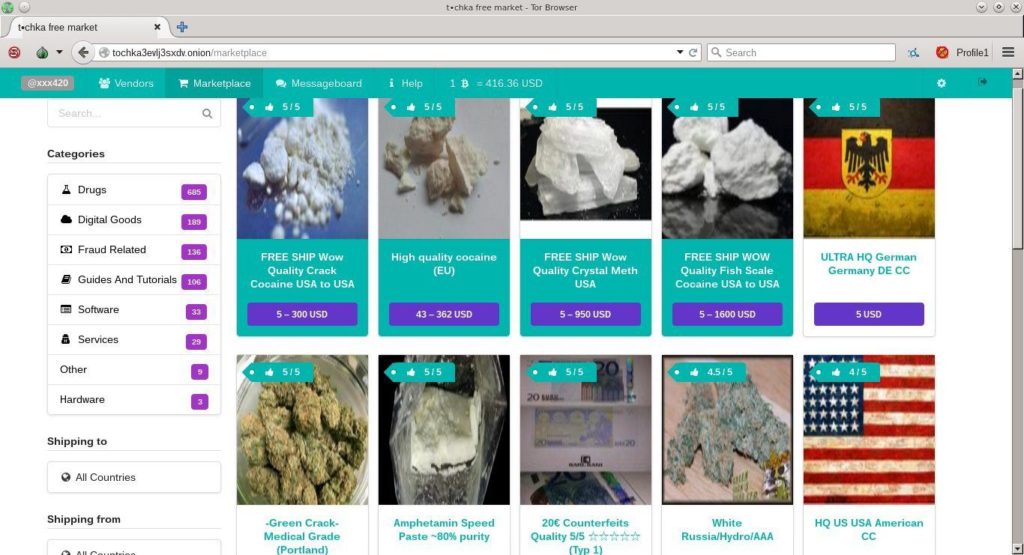kissmail22
About
- Username
- kissmail22
- Joined
- Visits
- 2
- Last Active
- Roles
- Member
Activity
-
The dark web, a segment of the internet that is not indexed by traditional search engines, has captivated public interest for its connection with privacy and illicit activities. Inside this dark realm there is a complex economy that prospers on the trade of goods and services that are commonly illegal or challenging to find in the surface web. Dark web marketplaces have arisen as the online shops of this economy, where users can purchase and trade everything from drugs and forged goods to hacking tools and illegally obtained data.
These marketplaces work on a foundation of confidentiality and secrecy, utilizing cryptocurrencies such as Bitcoin to enable transactions without revealing buyers' or sellers' identities. As more people start to wonder about the dark web, understanding its marketplaces is essential to understand the greater implications of this concealed economy. The allure of anonymity and the promise of non-regulated trade keep enticing users, raising questions about the law, ethics, and the future of trade in a technological era.
A Look Into on this Dark Web
The dark web represents one subset of our deep web, which encompasses all parts in the internet that are not indexed by traditional search engines. It requires specialized software and configurations to gain entry, most notably through the Tor network. darknet websites This network anonymizes users, rendering it difficult to trace their activities. As a result, the dark web operates separately from the surface web, where most online interactions occur.
Inside the dark web, markets thrive in a variety niches, spanning from illicit goods to services. Such marketplaces are often organized similarly as popular e-commerce sites but run on the principle based on anonymity and encryption. Sellers create profiles, which allow them to showcase their offerings, and customers rely on user reviews and feedback to navigate the sometimes dangerous buying landscape. The competitive nature of these platforms drives innovation and adaptation among sellers.
The transactions that take place in dark web markets usually utilize cryptocurrencies, most notably Bitcoin being the most prominent. Such financial anonymity provides another additional layer of security to both buyers and sellers. In spite of the risks involved, the dark web economy has flourished, attracting those who seek to engage in activities not permissible in the conventional marketplace. Understanding the structure is crucial to comprehending the complexities and the dark web economy.
Exchanges in the Darkness
In the lawless world of the darkweb, transactions occur away from the scrutiny of traditional oversight. Participants engage in the trading of illegal goods and services with a heavy emphasis on anonymity. This setting fosters a sense of safety for clients and vendors alike, as they use cryptocurrencies like Litecoin to conceal their identities and monetary paths. The allure of the deep web includes entry to items rarely found in regular marketplaces, from illegal drugs to counterfeit documents, all offered at the click of a button.
Moreover, the infrastructure of darkweb marketplaces is designed to facilitate safe exchanges. Escrow services are frequently employed, where funds is held until both parties fulfill their responsibilities. This method builds confidence among participants who might might be wary of scams or fraud. Reviews and ratings play a crucial part as well, allowing users to assess the reliability of vendors. Such mechanisms help maintain a semblance of order within the chaos of illegal trading, encouraging repeat business.
Nonetheless, the volatile nature of darkweb markets poses substantial threats. Law enforcement agencies constantly observe these areas, leading to occasional raids that can dismantle popular platforms overnight. This uncertainty drives a perpetual cycle of new marketplaces emerging to take the spot of those that have been removed. For users, this means finding their way through a changing landscape where safety and legality are uncertain at best, reminding all that while transactions may be safe, the darkness of uncertainty are always looming.
Hazards and Rules
Participating with darkweb markets involves significant dangers, both legal and individual. Users face the danger of facing police actions aimed at disrupting illegal activities. Many people have been detained as a result of actions targeting these sites, highlighting the true risk of criminal charges, fines, or jail time. Beyond legal consequences, there are dangers related to frauds, as the anonymity of transactions can lead to conflicts over failure to deliver of goods or services.
The lack of regulation in the black market marketplace also raises worries regarding security and security. Cybersecurity risks, such as cyber intrusions or identity theft, are common on these marketplaces. Participants may unknowingly expose themselves to viruses or scamming attacks when browsing these environments, putting their private data and financial data at risk. Additionally, the illegal nature of many offerings means that buyers may be involved in purchasing harmful or unsafe goods, raising the potential for negative outcomes.
Regulations surrounding the darkweb remain complex and often inefficient. While some areas have made strides in tackling the issues posed by these hidden markets, global cooperation is difficult due to different laws and law enforcement capabilities. As regulators continue to adjust to the changing landscape of the darkweb, users must remain vigilant and knowledgeable about the legal consequences of their behaviors, as well as the possible dangers inherent in engaging with an unregulated economy.
 September 3
September 3